
At one time, the town boasted of having a college, a textile plant, five sawmills, two hotels, four major oil companies with producing wells, a concrete tile plants, and a patent medicine company. In the early-Twentieth Century, a railroad was proposed for construction to link Elton and Jennings. But because of land acquisition, this construction never materialized.Probably the oldest was the Thomas Buller family, that came from St. Landry Parish around 1840 to settle among a grove of great oaks north of the present Missouri Pacific Railroad. The Bullers were descendants of Joseph Buller Sr., born in 1781 in Opelousas. He was the son of John Buhler, who was born in Germany. The name had been changed to Buller by the time Thomas reached adulthood. Thomas was born in 1808 in Opelousas and married there in 1831 to Emilie Brignac.
Emile Buller, brother of Thomas, also moved to the Elton area some years later. He served in the Civil War and moved from Washington (La.) after the war, settling at a spot about a mile north of the town. He was married to Elizabeth Johnson.
J. M. Henderson came from Des Moines, Iowa, in 1888 and started a store where he established the Elton post office about 1891. The wife of pioneer settler J. M. Henderson is said to have chosen the name Elton for her home town from a book in which she read of an English town named Elton. That was probably the town on the north-west coast of England in Durham County near Middlesbrough.
According to an old recollection, "There were three post offices on the route. Raymond was 10 miles north of Jennings; China was 15 miles north of Jennings; and Elton was 20 miles north of Jennings. The mail was carried on horseback twice a week. Later, the carrier used a two-wheeled gig and carried a passenger at one dollar when he could get one."
The Marcantel family was also at Elton early on. The first of them in Louisiana was Joseph Vuillemont Marcanteli, who came from Italy. He'd settled near Washington in St. Landry Parish at least by 1770, when he was listed as a militiamen. His descendants came to Elton prior to the Civil War.-Excerpted from “Elton named for town in Middlesbrough, England,” Lafayette Daily Advertiser, by Jim Bradshaw
Farmers in the Elton area have as rich of a history in farming rice as the rest of Jefferson Davis Parish. There are many important farming families around Elton, including the Bullers and Marcantels. In the early-1920's, though, there was an interesting newcomer in this lumber and farming community. "Hippies" were in Elton, fifty years before there was such a thing. A social experiment started by Job Harriman, a Socialist from California, along with his utopian followers, settled in New Llano, Louisiana, outside Leesville around 1918 and survived until the late 1930's. It was the longest surviving utopian community in U.S. history. Although their principal colony was in New Llano, the colony operated a "Rice Ranch" just outside Elton.
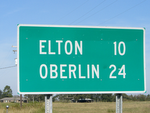
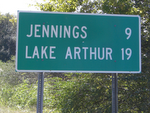
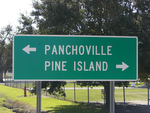
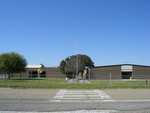
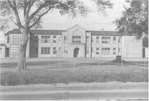
No comments:
Post a Comment